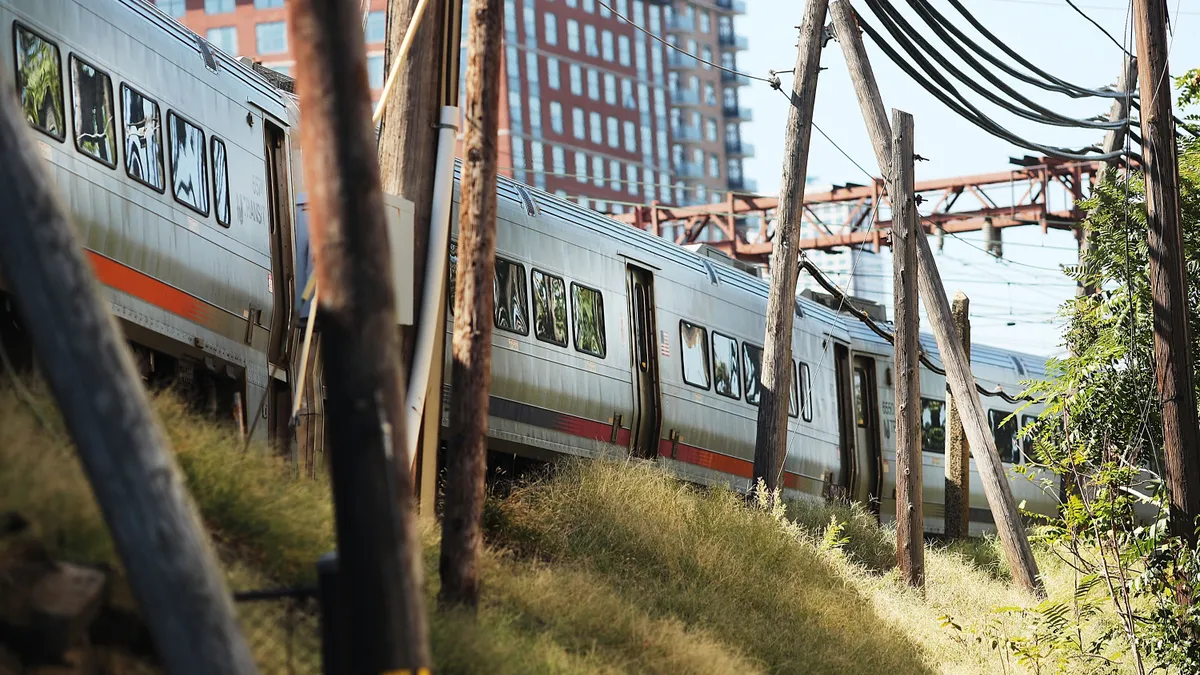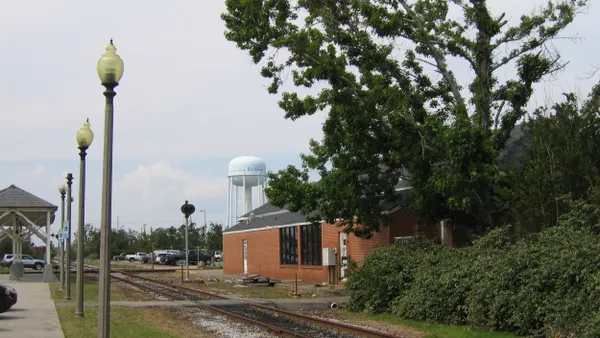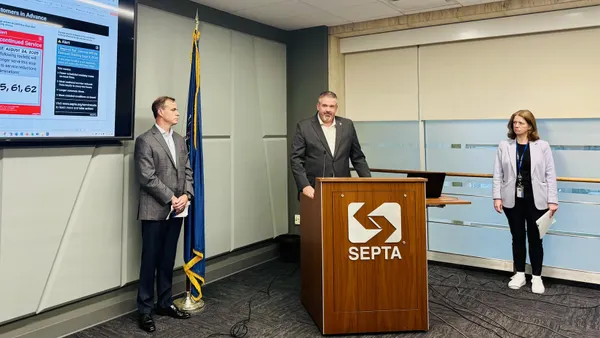Dive Brief:
- A broad coalition of advocacy groups is calling on federal lawmakers to add $10 billion in transit funding to the Build Back Better Act budget reconciliation package to supplement the $39 billion in the Senate-passed infrastructure bill.
- A bipartisan framework for the infrastructure bill that the White House and senators of both parties negotiated included $49 billion for transit and rail service, but that figure was cut to $39 billion in the final $1 trillion bill the Senate passed in August. In a letter to congressional negotiators, the coalition of 45 industry groups says the original funding level will "enable us to tackle climate change, advance equity, and meet the growing and evolving mobility demands of our communities."
- The House Transportation and Infrastructure Committee has not released its spending bill for the budget reconciliation process, but the committee's chairman, Rep. Peter DeFazio, D-Ore., has promised to use it to boost transit agencies. In an August statement, DeFazio said he would "fight for transformational funding and policies in the reconciliation process."
Dive Insight:
Transit funding emerged as a sticking point in the negotiations over the Senate infrastructure bill. As NBC News reported, Democrats had hoped for an 80-20 split in the bill between funding for highways and rail, but Republican senators worried the transit money would favor urban areas in blue states. Sen. Rob Portman, R-Ohio, told NBC News that the original transit measure was "way too rich" and said the $39 billion compromise was "still a very generous increase in funding for transit. It's just not hugely disproportionate compared to roads and bridges."
Democrats have said they plan to boost transit funding in the separate $3.2 trillion budget reconciliation package. Both chambers have passed the top-line budget bill, but the House Transportation and Infrastructure Committee and the Senate Banking, Housing and Urban Affairs Committee have not released their individual budget bills, which will contain the transit provisions.
"Beyond the climate change benefits, improving transit access is one of the biggest things you can do to address racial and class inequities in communities," said Deron Lovaas, senior policy advisor for the Natural Resources Defense Council (NRDC). "These investments matter for communities … and are also a way to balance out the continued road investment that's in this package."
NRDC was one of the groups that signed onto the letter, which also had support from the American Public Transportation Association, the Transportation Trades Department of the AFL-CIO, the Steel Manufacturers Association and the International Brotherhood of Teamsters.
Lawmakers have an opportunity in the budget reconciliation bill to create a new, more equitable distribution for transit funding, said Yonah Freemark, senior research associate at the Urban Institute. In a report released last month, Freemark wrote that the current funding structure for transit operations, in which the federal government makes a relatively small contribution compared with those of state and local governments, largely means higher-income towns and cities have better public transportation access. Expanding federal transit operations funding by $20 billion a year and apportioning funds to communities based on equity, he found, could reduce differences in transit quality and equity.
"We often talk about inequities within communities rather than between communities," Freemark said in an interview. "Right now too many of the smaller, less wealthy parts of the U.S., whether that's neighborhoods in Detroit or small towns on the border of Mexico, suffer simply because people don't have access to high-quality transit."
Freemark said that an equity formula that distributes some funds to counties based on the share of households with annual incomes of less than $30,000 would benefit areas not typically thought of as transit hubs, including rural communities. That plan, representing a 40% increase in federal transit operations spending, could double funding opportunities in some communities, Freemark found.
Rep. Hank Johnson, D-Ga., introduced a four-year, $80 billion bill that would support and improve public transit operations add new transit service, focusing new funding on "places with existing poor service, disadvantaged communities and areas of persistent poverty." The $715 billion, five-year transportation reauthorization bill that House Democrats passed this summer also dedicates $50 million a year to rural transit and creates a new program to address "transit deserts," provisions that could influence the budget reconciliation bill.
"The fact that this is even a conversation is an interesting statement about the change in our approach to transit funding compared to the past," Freemark said. "There's been a shift in the mentality about what the role of federal transportation funding should be. From that perspective, we are looking at some really positive changes."










